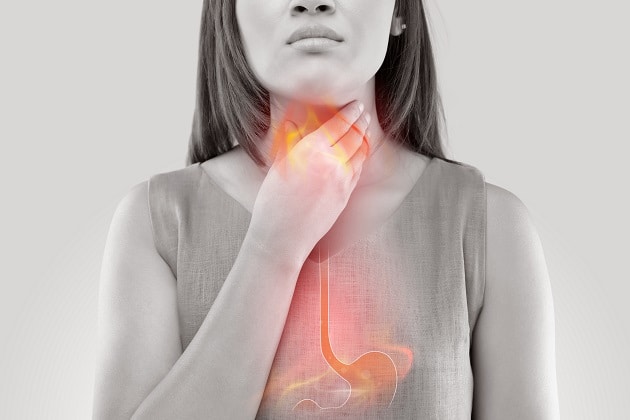
September 28, 2020
Gastroesophageal reflux disease, also known as GERD, is caused when the stomach acid or bile flows to the mouth through esophagus on a frequent basis. The repeating occurrence of acid reflux hugely irritates the esophagus lining, resulting in heartburn, chest pain, cough, among others. While most cases of GERD may be managed through lifestyle changes, acute cases may need medication or a surgical intervention. To help you better understand the condition, we present a simple guide covering the symptoms, causes, and complications of GERD. Read on.
Symptoms
The most common GERD symptoms include heartburn that is generally observed after meals, pain in the chest, difficulty swallowing, regurgitation when eating, constant cough, and sleep disturbances, among others. While millions of people across the world suffer with GERD on a daily basis, over-the-counter medication, dietary changes, and lifestyle changes mostly help control the condition. When the aforementioned solutions do not offer any relief, it is advisable to pursue surgical treatments after consulting with your physician.
Causes
The main cause of GERD, as explained initially, is frequent acid reflux. When we swallow food, the bottom of the esophagus relaxes to allow the free flow of food and liquids, and closes once we are done eating. Abnormal relaxation of the esophagus, however, allows stomach acid to travel upwards to our mouth. This ends up irritating the esophagus, resulting in a host of uncomfortable symptoms.
Complications
Obesity, smoking, consuming large meals before bedtime, and drinking alcohol may end up increasing the risk of developing GERD. The condition, when not treated and managed early on, may end up leading to troublesome consequences which include:
Esophageal Ulcer
The esophagus, when coming in contact with stomach acid for an extended period, ends up suffering tissue damage, resulting in the formation of ulcers. Such esophageal ulcers cause difficulty and pain when eating.
Esophageal Stricture
Stomach acid’s damaging effect on the lower esophagus triggers the development of scar tissue, which further narrows the esophagus and makes it difficult to swallow food.
Barrett’s Esophagus
In cases where the damage done by the stomach acid to the lower esophagus intensifies, it may lead to an increased risk of developing esophageal cancer.
Lastly
Long-term GERD, as we explained above, leads to several serious conditions such as ulcer growth and cancer. While lifestyle changes and medication is the first resort to managing GERD, chronic cases may require a surgical intervention. Minimally invasive GERD surgical treatments such as LINX, Nissen Fundoplication, and gastric bypass might help you find relief from the condition without the need for complex and invasive surgeries. If you or a loved one need surgical treatment for GERD in Dallas or Fort Worth, Texas, look no further than DFW Bariatrics and General Surgery of Dallas. Consult our team of general surgeons and weight loss specialists in Fort Worth. To schedule an appointment, click here or call us at +469-620-0222.
